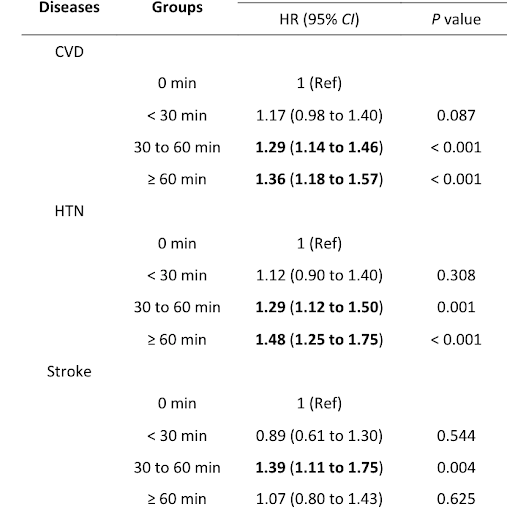Key Points:
- Individuals who napped for over 30 minutes in the daytime were more likely to succumb to cardiovascular disease, hypertension (high blood pressure), or stroke.
- Daytime napping for over an hour leads to more profound effects than napping for just 30 minutes.
Daytime sleeping (napping) is commonly thought to rejuvenate and promote healthy habits, including a healthier cardiovascular system. However, a recent study published in Biomedical and Environmental Sciences has come to the opposite conclusion.
Researchers from Wuhan University of Science and Technology focused on 13,000 participants who self-reported their napping habits and cardiovascular concerns in the China Family Panel Study (CFPS) – a long-term ongoing nationwide social study. The Wuhan researchers found that napping for more than 30 minutes increased the risk of cardiovascular disease, hypertension, and stroke. Cardiovascular disease and hypertension, but not stroke risks were increased even further when participants napped for more than an hour.
“This study provided strong evidence that daytime napping was associated with increased risks
of [cardiovascular disease] and [hypertension] in Chinese adults,” the researchers wrote.
Daytime Napping Leads to Increased Cardiovascular Risk
The China-based researchers studied surveys from 13,706 participants with an average age of about fifty. They divided the participants into four groups based on napping duration: zero minutes of napping, less than 30 minutes, 30 to 60 minutes, and more than 60 minutes. It was found that when participants napped for more than 30 minutes, there was a 29% increase in the risk of cardiovascular disease, a 29% increase in the risk of hypertension, and a 39% increase in the risk of stroke. Furthermore, these numbers increased to 36% for cardiovascular disease and 48% for hypertension when the individuals napped for more than 60 minutes.

Looking at different subgroups, men and women exhibited similar risks with longer naps. Increased risk for hypertension was seen in those aged 30-49 years and those with lower BMI (below 24). Additionally, the researchers found that the association between napping and cardiovascular disease risk was modified by physical activity, with larger risks found among those who were physically inactive. Furthermore, smoking, alcohol intake, and longer nighttime sleep (greater than 7 hours) also increased the cardiovascular disease risk induced by longer napping.
Is Limiting Nap Time Ideal?
The findings of this study seem to indicate that naps over 30 minutes may negatively affect our cardiovascular health, however, this study had some limitations that need to be addressed. The primary limitation is that this is a correlation study, meaning that it does not show cause and effect. Additionally, the researchers did not look at the rate of sleep apnea among participants, which may make them more likely to take naps and has been shown to increase one’s risk of cardiovascular disease. Additionally, the survey is all self-reported, which means participants are much more likely to make mistakes or misremember.
Limitations aside, another study out of the U.K. also indicated that too much napping leads to an increased risk of hypertension, so maybe there is something to be said about limiting our naps. It’s also important to note that the risks increased with increased nap length, so short power naps are not going to increase one’s risk. Importantly, increasing one’s physical activity level decreases one’s risk and likely increases nightly sleep quality. Overall, for increased cardiovascular health, it seems that getting 7 hours of sleep a night, limiting smoking and drinking, exercising, and not taking long naps is the way to go.